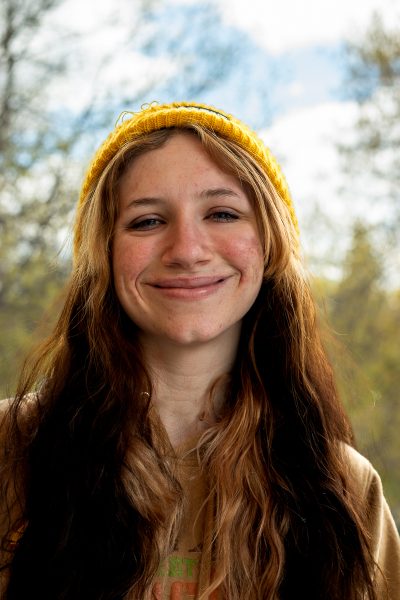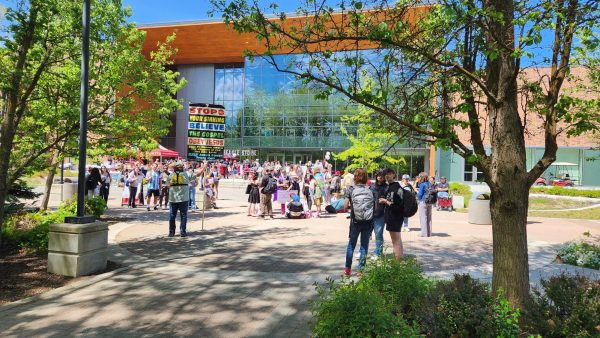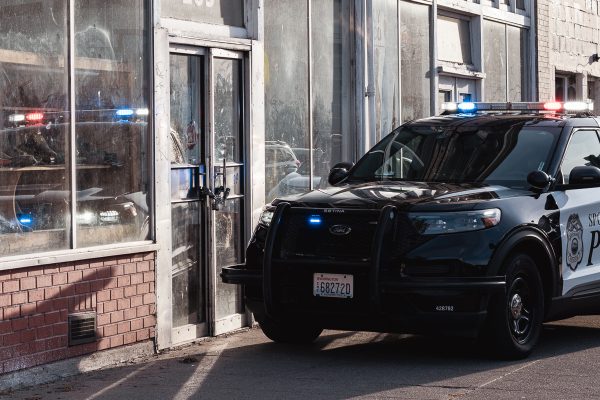Majority of students and faculty who responded to survey oppose switch to semesters
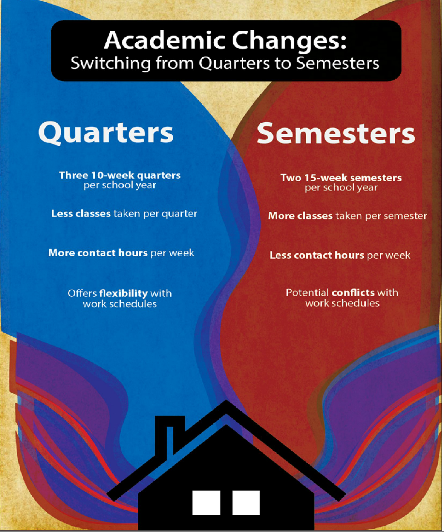
November 15, 2013
Money issues, student retention and curriculum change were the common themes of presentations made at the board of trustees town hall meeting on Nov. 8 about whether or not Eastern should switch from quarters to semesters.
Faculty members and students turned out to speak their minds on the topic. Most were against the semester system, but there were a few who preferred a switch.
Among these few was Rebecca Stolberg, department chair of Eastern’s dental hygiene program.
“Speaking as a faculty member, the health profession programs are better served by semester systems because of the clinical rotation pieces, the externships [and] the time away that the host of our externships want to have those students,” Stolberg said.
According to Stolberg, the communication disorders program, located at the Riverpoint campus, made the switch to semesters. The faculty working for that program did it themselves and Stolberg wants the dental hygiene program to follow in their footsteps.
Students had their say on the issue as well.
Junior Annika Browne is a disabled student who made her stance that the estimated $8.7 million that would be used to make the switch could be used to fix accessibility problems on campus for her and other students with disabilities.
Browne spoke about how the wheelchair accessible stalls in some of the bathrooms around campus, particularly in Williamson Hall, are not accessible to students with disabilities.
“I am a student at this university and I should not have to stand up here and ask you why I am not worthy enough, why I am not equal enough to be provided with a toilet,” Browne said.
Browne also mentioned that Louise Anderson Hall is not accessible by wheelchair and that the elevators in Isle and Senior Halls are not accessible enough.
In the science building, Browne said, the wheelchair accessible elevator is all the way in the back by an unused fish laboratory and when she asked faculty where it was, no one knew it even existed.
“What message does that send to students with disabilities?” she asked.
According to Browne, the disabilities support services on campus has money to fix a few things every year, but it is not enough.
She asked the board, “Can you look me in the eye and say that those reasons [for semesters] are more important than giving students an equal chance at education, and not just those who can walk up a flight of stairs?”
Dexter Calkins, a junior, spoke about the fact that there is no evidence that semesters are better than quarters and vice versa.
“To put it simply, there is no reason to change to a semester system if the goal is to have better retention and graduation rates,” Calkins said. “I would like to propose a much more practical solution: build a tall fence encasing the campus. Student retention would not only increase, but would take a much more literal meaning.”
He based his presentation around Eastern’s values of quality, access and inclusiveness and the fact that the change would negatively affect teaching on campus for an estimated three years.
Calkins held a booth in the PUB on Nov. 6 where, in 45 minutes, he gathered 80 signatures of students who preferred quarters.
“If it ain’t broke, don’t fix it,” Calkins said.
Faculty against the semester system based their presentations around departmental issues, the fact that there is no evidence showing which system is better and on previous attempts at a switch.
“I’m encouraging you to let it go away,” Michael Folsom, a professor of geography, told the board.
According to Folsom, the past two times Eastern tried to make the switch, it failed and the topic just “went away.”
Dr. Camille McNeely, associate professor of biology, is concerned that a switch to semesters would disrupt the time students get to do field work interacting with organisms.
“My overwhelming concern is that we are here at the far northern portion of the United States and we have a long winter and yet for teaching biology, it’s critically important that our students can get outside and interact with organisms,” Dr. McNeely said. “As it turns out, we can do that under our current schedule very well in the spring quarter.”
She said that the semester system, in Washington’s climate, would disrupt this interaction and therefore would not work well with the biology department’s curriculum.
A sense of relief and victory was in the air as the meeting wrapped up and faculty and students had the chance to mingle and complement each other on their presentations.
“I think it went well. I mean, I didn’t expect unanimity across the different segments, faculty [and] students,” said President Dr. Rodolfo Arévalo. “I think though, [this meeting] gives the board a clear understanding of why people feel the way they do.”
The board of trustees is expected to make their decision on Dec. 3.




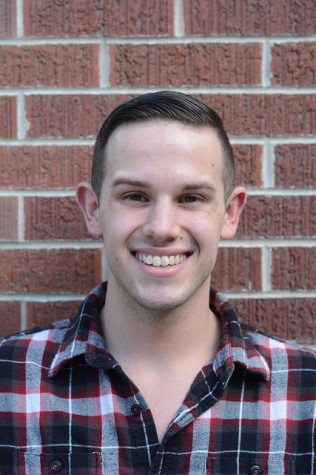


![Simmons said the biggest reasons for her success this year were “God, hard work, and trusting [her] coach and what she has planned.”](https://theeasterner.org/wp-content/uploads/2024/05/image1-1-1200x800.jpg)


![Simmons said the biggest reasons for her success this year were “God, hard work, and trusting [her] coach and what she has planned.”](https://theeasterner.org/wp-content/uploads/2024/05/image1-1-600x400.jpg)

